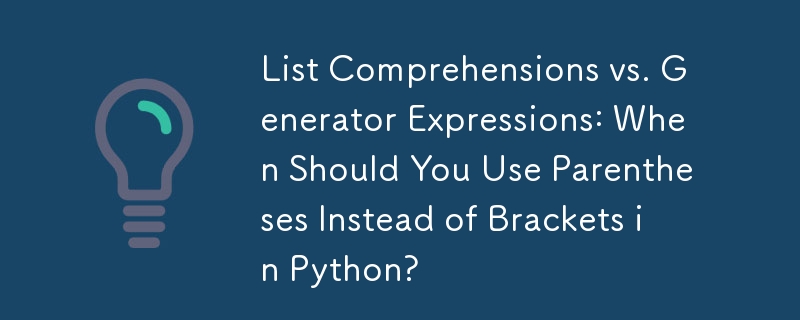

In Python, list comprehensions are a powerful tool for creating lists. However, the Python language also introduces another similar feature known as generator expressions.
Generator expressions differ from list comprehensions in that they don't use square brackets ([]). Instead, they employ parentheses (), yielding values one at a time. This characteristic makes them more memory-efficient than list comprehensions, as they generate values on the fly without creating a complete list in memory.
In the example provided, str(_) for _ in xrange(10) is a generator expression that produces a sequence of strings representing numbers from 0 to 9. Passing this generator expression to join has the same effect as using a list comprehension, but without the need for square brackets.
However, it's important to note that not all functions can accept generator expressions. Functions that require a complete list, such as sort or len, will need an explicit list.
Memory Efficiency and Performance
In general, generator expressions are more memory-efficient than list comprehensions. However, in the case of join, using a list comprehension is both faster and more memory-efficient. This is because join needs to make two passes over the data, and having a real list allows it to start work immediately.
The performance advantage of list comprehensions over generator expressions in this case is illustrated by the following Python timeit benchmarks:
>>> timeit ''.join(str(n) for n in xrange(1000)) 1000 loops, best of 3: 335 usec per loop >>> timeit ''.join([str(n) for n in xrange(1000)]) 1000 loops, best of 3: 288 usec per loop
Therefore, while generator expressions offer memory-efficiency advantages in many cases, it's important to consider the specific performance characteristics of the function being used when making a choice between list comprehensions and generator expressions.
The above is the detailed content of List Comprehensions vs. Generator Expressions: When Should You Use Parentheses Instead of Brackets in Python?. For more information, please follow other related articles on the PHP Chinese website!




